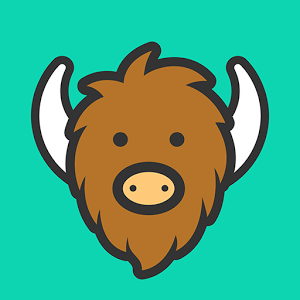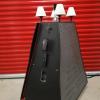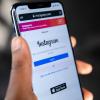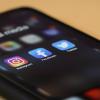To Tyler and colleagues at Yik Yak,
You don’t know me. In your eyes, this may make me seem less of a person; that my identity is a crucial aspect of how we must communicate and get to know one another, and that somehow what we establish here is less valid if one remains under a veil of anonymity. I would like to argue this point.
However, I will provide some background information. I have been a user of Yik Yak since nearly the beginning. I’ve been here since before the implementation of herds. I remember when anyone could claim to be OP. I remember when icons were incredible (and, I assume, many college campuses were like my own and saw one icon in particular as being the most important). I also saw how Yik Yak became troublesome for high school students who were not equipped to use the app with maturity, and I saw how you firmly ended that behavior by restricting it from those high schools. I’ve seen features come and go, but the underlying theme of anonymity always stayed the same. That is, until August 16, 2016, when handles attached to profiles became mandatory, and that shroud of anonymity was torn away.
Perhaps Yik Yak’s COO, Brooks Buffington, best made the case for anonymity himself: “No one user would have an advantage over another based on followers or popularity and posts would be judged exclusively by their content.”
This is an incredibly important statement. In a digital space where one is increasingly judged by the quality of one’s digital persona or “portfolio,” the ability to express oneself free of all ties and judgments has all but disappeared.
Some may see anonymity as a gateway to bullying and abuse, and that is a fair claim to make. It can certainly be true. However, bullying also exists to massive degrees outside of anonymity. Anonymity itself does not create the abuse; it is only one of many vehicles through which it may travel. If we are to condemn a vehicle based solely on one of its unruly passengers, maybe we should also consider the other passengers as well.
In my time on Yik Yak, I have seen many incredible things. I’ve seen everything ranging from personal problems that pertain to one person to active threats that pertain to the entire campus. I’ve seen inane humor and absurdity. I’ve seen drama and I’ve seen romance. I’ve seen these things evolve and flourish not in spite of anonymity, but because of it.
I’ve seen a man pour out his heartbreak and tears over breaking up with his girlfriend into a post. If he had used a handle, many may have known him as last year’s top defensive lineman, a business major, driver of an F-150, and owner of two mixed pitbulls. That night, however, he was just a heartbroken guy, and the support was phenomenal. There was no judgment, and no one but him had to know his story.
I’ve seen a woman post at 2:45 AM asking what she should do if she thinks she might have just been raped. If she had used a handle, some might have known her as a freshman sorority girl, a premed biology major, fun-loving and always happy to talk. On that morning at 2:45, however, she was just a scared girl who needed help, and what she received was incredible. The next day, not a soul knew her as “that girl that got raped,” because her story was her own.
I’ve seen a threat on campus that caused every building to enter lockdown. People were pressed into small rooms for four hours while police swept the property. Without anonymity, we might have known that a PHD student was having a breakdown worrying that he might be about to die. We might have known the calm, collected person who kept the campus informed was the mousey sophomore that never wanted to bring attention to herself. We might have seen things about these people that we never could have forgotten once those doors opened and let us back outside.
But we would not have seen any of those things without anonymity. What Yik Yak allowed was the ability to reinvent yourself as needed, or even to be yourself when it was feared. It allowed a freedom of expression judged exclusively by its content, not the face behind it.
Yes, we also saw the late night sex yaks. We saw the occasional abusive yak. For better or for worse, we saw people speak well or speak poorly of their professors. But we also saw the brutal, honest truth. No one had to wear a mask or hide behind their publically recognized persona. And that far, far outweighed any negative that will certainly exist on any platform, regardless of how many links to reality you try to throw into the equation.
Today, the herds we take part in are seeing few if any real discussions. Few are willing to attach a name to an opinion, because there are real repercussions for real people for having ideas that others may not agree with. There is nothing to be gained from saying something that may be unpopular, but everything to lose. You say this is about finding our true “Herd” and allowing us to make better “connections,” but that is precisely the functionality you have curtailed.
Yik Yak, the world doesn’t even a 33rd Twitter, a 12th MeetMe, a 19th Tinder. We don’t need yet another social media platform that is exactly like all of the others but with a location check. What we do need is the ability to be ourselves, to be the real us. Yik Yak gave people a voice that they didn’t have before – not one they used to vocalize abuse, but one they used to express themselves freely in an online world that is increasingly limiting our freedom and our expression by the day.
I implore you to make a better choice, but I thank you for our years together up until this point.
















